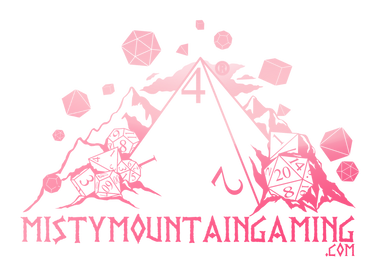
Beginner's Guide to Drow
Two weeks ago, our Rimehold Ritual D&D adventure wrapped up. Our incredible players formed an all-drow party, surprising nobody more than me, their Dungeon Master. Dark elves are an incredible race from both a roleplay and mechanical perspective, though they’re often misunderstood. As the first of our dives into D&D’s classic character races, let’s celebrate Dame, Doc, Luca, and Druna by starting with the drow!

Let’s start with what sets them apart from other elves. The drow originate from the Underdark, an otherworldly layer of the Prime Material plane far below the surface where most other races live. The drow aren’t just subterranean elves, however. The Underdark is more like another dimension or plane of existence. It is suffused with foreign magic and alien forms of life. Their prolonged exposure to this magic (called “faerzress”) has fundamentally altered their elven biology.
Some aspects of their elven heritage shines through. They are still naturally graceful in their movements, exceptionally long-lived, do not require sleep, are uncommonly aware of their surroundings, and are able to see in darkened spaces like their surface kin. They boast slim frames and pointed ears. But that is where the similarities end. Their skin always has an ashy hue, and their hair is naturally white from birth. Their ability to see in the dark is far superior to that of other elves, but they are sensitive to direct sunlight in trade. Few drow spend much of their time where the sun might reach them.

The faerzress gives each dark elf the ability to tap into powers of light and darkness, especially with age and training. Drow can cast the dancing lights cantrip from a young age, and can go on to cast more complex spells like darkness and faerie fire, even if they aren’t proficient with other magic or spells.
Drow are accustomed to fighting in the Underdark, where there are many chasms, ledges, and tunnels connecting large caverns. Since there’s not always much room to move about, they prefer thrusting weapons that minimize lateral movement when in close quarters. All drow adventurers are trained with rapiers and shortswords, which rely as much on the wielder’s agility as their strength. They also train with shortbows, so that they may fell the monstrosities that call the Underdark home before they close to striking distance.
Drow society is matriarchal in nature. Female dark elves are seen as more competent and valuable than males, who are sometimes treated as second class citizens. One of the highest honors a drow matriarch can achieve is to be chosen as a high priestess of Lolth, the patron goddess of the drow. Lolth is the Queen of Spiders, and was formerly numbered among the lords and ladies of the Abyss alongside the Demogorgon and Baphomet. She has since distanced herself from those brutish ruffians, but is still understood to be a fickle and capricious goddess. Those who earn her favor often eventually find themselves suffering a cruel fate. As her followers, the drow are similarly disposed to cruelty, betrayal, and self-interest. Those who rebel against this dark nature often make legendary heroes, like Drizzt Do'Urden!

While a dark elf can pursue any class they wish, Dark elves make exceptional Rogues, Rangers, Bards, and Sorcerers due to their natural Dexterity and Charisma, their connection to magic, and their experience in harsh, dark environments.
As per the Player’s Handbook, if you make a Drow player character in D&D Fifth Edition, they benefit from the following…
What sort of drow have you played before? Any favorite dark elf adventures you're willing to share, or character builds you're excited to try? Fill us in on Twitter, Facebook, Instagram, or in our Discord!Ability Score Increase
Your Dexterity score increases by 2, and your Charisma score increases by 1Age
Drow can live to be 750 years old, though they physically mature at the same rate as humans.Size
Drow are typically slender and range from under 5 to over 6 feet tall.Speed
A Drow’s base walking speed is 30 feet.Superior Darkvision
Your darkvision has a radius of 120 feet.Sunlight Sensitivity
You have disadvantage on attack rolls and on Wisdom (Perception) checks that rely on sight when you, the target of your attack, or whatever you are trying to perceive is in direct sunlight.Keen Senses
You have proficiency in the Perception skill.Fey Ancestry
You have advantage on saving throws against being charmed, and magic can’t put you to sleep.Trance
Elves don’t need to sleep. Instead, they meditate deeply, remaining semiconscious, for 4 hours a day. (The Common word for such meditation is “trance.”) While meditating, you can dream after a fashion; such dreams are actually mental exercises that have become reflexive through years of practice. After resting in this way, you gain the same benefit that a human does from 8 hours of sleep.Languages
You can speak, read, and write Common and Elvish. Elvish is fluid, with subtle intonations and intricate grammar. Elven literature is rich and varied, and their songs and poems are famous among other races. Many bards learn their language so they can add Elvish ballads to their repertoires.Drow Magic
You know the dancing lights cantrip. When you reach 3rd level, you can cast the faerie fire spell once with this trait and regain the ability to do so when you finish a long rest. When you reach 5th level, you can cast the darkness spell once with this trait and regain the ability to do so when you finish a long rest. Charisma is your spellcasting ability for these spells.Drow Weapon Training
You have proficiency with rapiers, shortswords, and hand crossbows.

